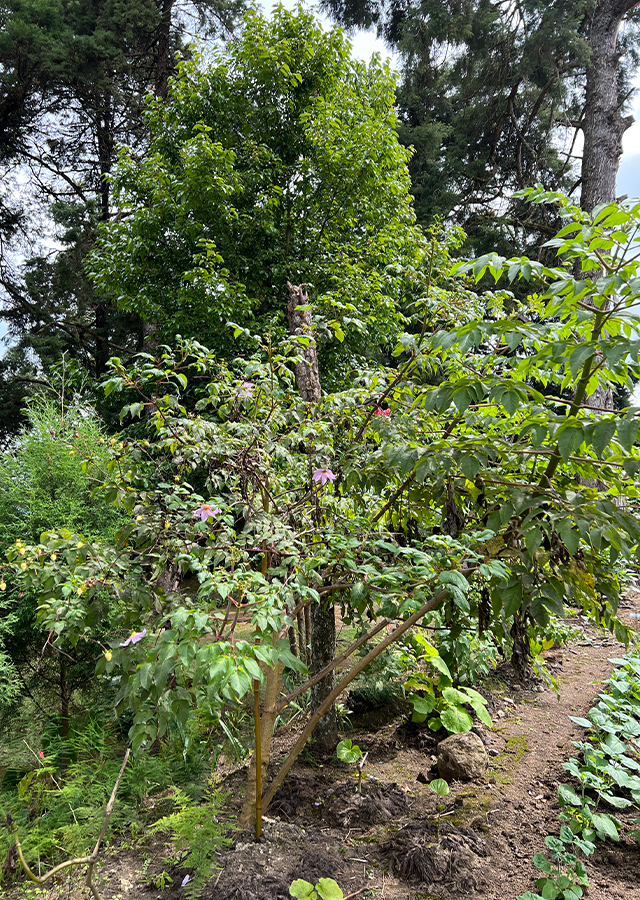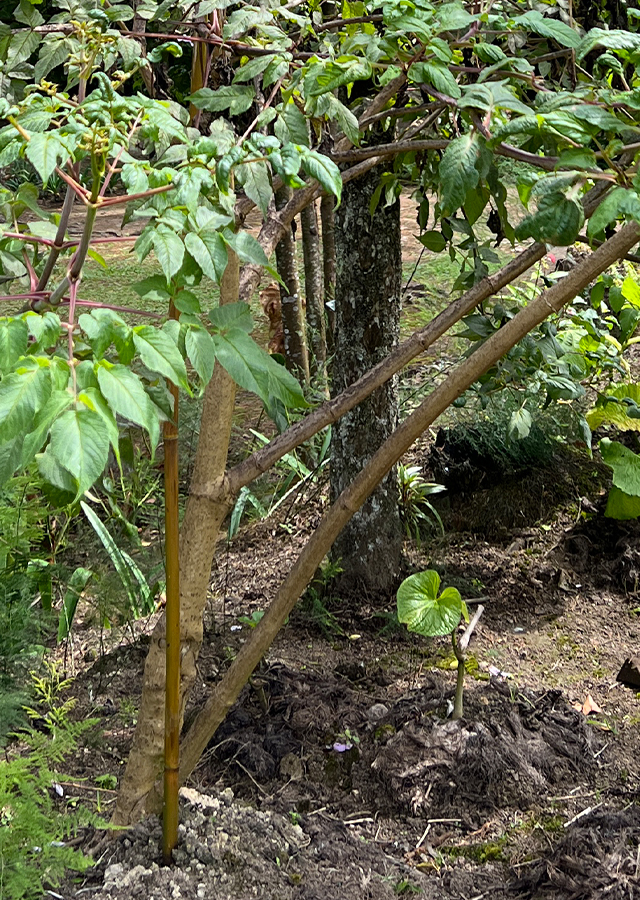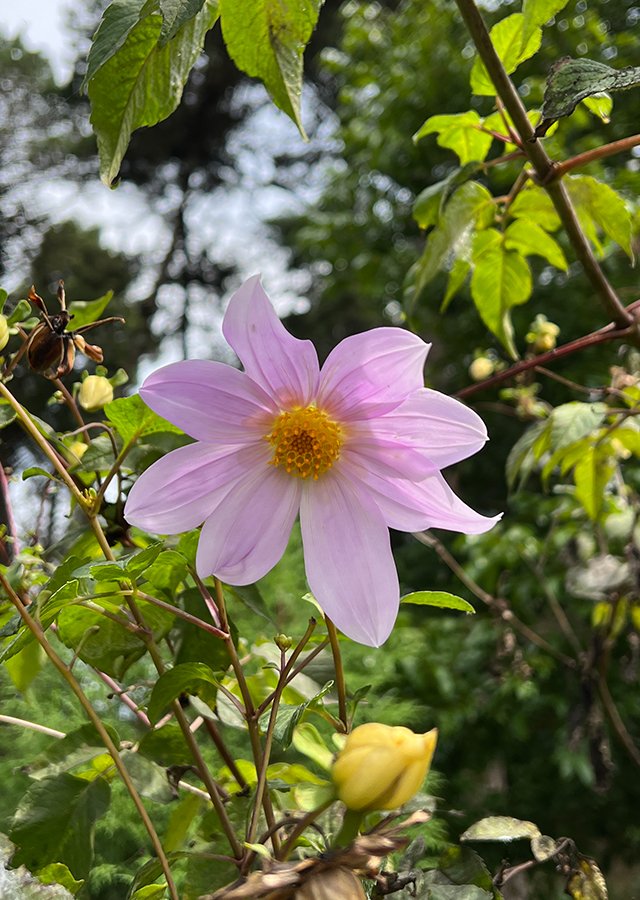Tree Dahlia
Dahlia imperialis Roezl ex Ortgies
Asteraceae
Location in our garden
Principal



Synonym
Dahlia arborea C.Huber
Dahlia dumicola Klatt
Dahlia lehmannii Hieron.
Habitus
Herbaceous. An evergreen fast-growing perennial herb, deciduous, growing 2–6 m tall.
Part Used
Leaves
Flowers
Tuber
Growing Requirements
Full Sunshine
Habitat
Mountains
Terrestrial
Overview
Dahlia imperialis is native to Mexico and possibly Colombia and Guatemala and elsewhere in Central and South America. It is considered as National flower of Mexico. It is used as animal food, an ornamental plant and a medicine, has environmental uses and for food.
Vernacular Names
No found data on this. Need further research.
Agroecology
Tree dahlia can be found in roadsides, disturbed areas, wastelands, urban open spaces, gardens, plantations and forest gaps/edges.
Morphology
- Root - tuberous roots.
- Stems - erect, 4-angled, brittle and woody (8 cm wide), usually branched from the base with swollen nodes and with underground tubers (a swollen underground stem that functions as a food storage organ or as a means of vegetative production).
- Leaves - opposite, pinnate, with mid-green leaves divided into many leaflets with long pointed tips.
- Flowers - nodding, mauve-pink, cup-shaped flowers pink, 2-10 cm in diameter, axillary, arranged in single long flower stalks or in several clusters. have eight petals and a central yellow disc.
- Fruit - thin winged achene fruit.
Cultivation
- Generative propagation is by seed.
- Vegetative propagation is by stem cutting and root division.
Chemical Constituents
Terpenoids, flavonoids, steroids, phenolics, alkaloids, inulin, saponins.
Traditional Medicinal Uses
It relieves itchy skin and acne.
Part Used
Reference Sources
- CAB International. (2019). Dahlia imperialis (bell tree dahlia). https://www.cabi.org/isc/datasheet/23278611. 22-04-2022.
- Kew Royal Botanic Gardens. (2021). Plants of the World Online: Dahlia imperialis Roezl ex Ortgies. https://powo.science.kew.org/taxon/urn:lsid:ipni.org:names:200959-1#synonyms. 22-04-2022.
- Nsabimana, C, and Jiang, Bo. (2011). The chemical composition of some garden Dahlia tubers. British Food Journal. Vol. 113(9):1081-1093. DOI:10.1108/00070701111174541.
- Wilbur, Mary. (2022). The Tree Dahlia. https://www.pacifichorticulture.org/articles/the-tree-dahlia/. 22-04-2022.


